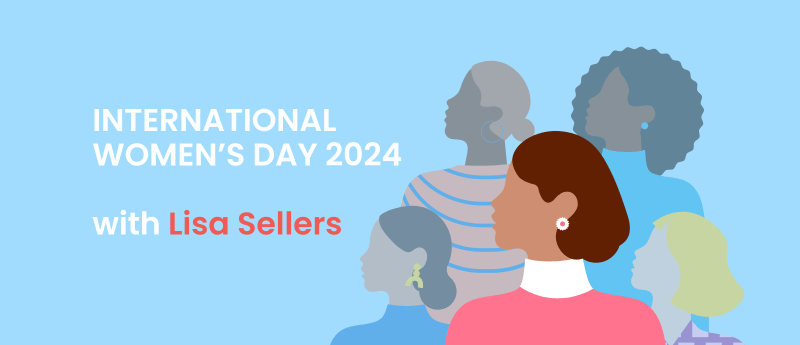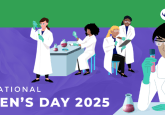Lisa Sellers talks opportunities, mentorship and initiatives for women in STEM

 Lisa Sellers, PhD
Lisa Sellers, PhD
CEO
Vector Laboratories (CA, USA)
Lisa Sellers is a seasoned leader and mentor in the life sciences industry, boasting over 2 decades of experience. As the CEO of Vector Laboratories, a manufacturer of immunohistochemistry, immunofluorescence and glycobiology products, Lisa leads the company’s expansion and business strategies. A fervent advocate for STEM professionals, Lisa mentors individuals to realize their full potential and attain career fulfillment. Her dedication extends to serving on advisory boards for institutions like Santa Clara University and San Jose State University (both CA, USA). Lisa has been honored as a Woman of Influence by the Silicon Valley Business Journal and featured in notable publications and speaking engagements, showcasing her leadership prowess and industry expertise. She holds a PhD in Chemistry from the University of Colorado Boulder (CO, USA) and a BS in Chemistry from Santa Clara University.
What motivated you to pursue a career in science and how have you overcome challenges along the way?
My first chemistry class sparked my fascination with science and I realized I had a natural ability to succeed in this subject. Fueled by this affinity for science and newfound confidence, I decided to pursue chemistry in college.
Despite facing challenges as the only woman scientist in my labs, I overcame them with support from female advisors and by valuing networking and mentoring. Embracing my ‘superpowers’, particularly emotional intelligence, helped me transcend biases and foster collaboration. Focusing on human-to-human connections became powerful in bridging the gaps created by gender roles. I discovered that irrespective of gender, ethnicity or race, we all share common ambitions.
Are there specific areas within your field where you see opportunities for more women to make significant contributions?
The interface of artificial intelligence (AI) and ethics offers a prime opportunity for women to make substantial contributions. With a focus on relationships, high emotional intelligence and strong ethical values, women are well-positioned to ensure that AI integration prioritizes people over technology. Women’s perspectives can be crucial in ensuring we approach AI integration thoughtfully and responsibly. In essence, women can lead the charge in shaping AI’s future, ensuring it serves humanity’s best interests while upholding ethical standards.
How important has mentorship been in your career, and have you had any notable mentors or role models who influenced your journey?
Mentorship has been instrumental throughout my career, particularly in navigating the challenges underrepresented individuals face in STEM fields. I’ve been fortunate to encounter numerous mentors and role models who’ve made lasting impressions on my journey. From my first chemistry teacher to my current female colleagues, each interaction has profoundly contributed to my growth.
Mentorship isn’t about one monumental event but an accumulation of meaningful connections and guidance. It’s about making a difference, one person at a time. Mentorship can take various forms, from a single meeting to a lifelong relationship. Now, I’m passionate about paying it forward by mentoring students at both university and high school levels. I aim to empower the next generation to find fulfilling careers that integrate science and business, just as I have been fortunate enough to do.
Are there specific policies or initiatives that you believe could enhance and support the work of women in scientific careers?
I believe investing in young girls and women at high school level, particularly those interested in ethics and AI, is crucial. We can cultivate a talent pipeline in these fields by establishing initiatives and corporate support for these programs. By nurturing interest and involvement in these fields from an early age, we empower girls to contribute meaningfully to scientific endeavors and ensure a more balanced and inclusive approach to ethical innovation. These policies and initiatives are essential steps toward fostering diversity, equity and excellence in scientific careers, ultimately benefiting both individuals and society as a whole.
Is there a female colleague you would like to commend for their contributions or achievements in the bioanalytical field specifically?
I would like to commend Junko Stevens from Thermo Fisher Scientific (MA, USA) for her remarkable contributions to the bioanalytical field. I had the privilege of collaborating closely with Junko from 2005 to 2018. As my direct R&D leader for 5 years and a scientific partner after that, Junko played a pivotal role in innovating within genomics, particularly in detecting infectious diseases and molecular diagnostics through PCR and real-time PCR technologies.
Junko invested considerable time into building relationships, driven by a genuine desire to help others advance through her leadership and collaborations. Moreover, her collaborative approach and scientific expertise were truly exceptional. Throughout our collaboration, we challenged each other while providing unwavering support. She is a true exemplar of leadership, inspiring all who have the privilege of working alongside her in bioanalytics.





